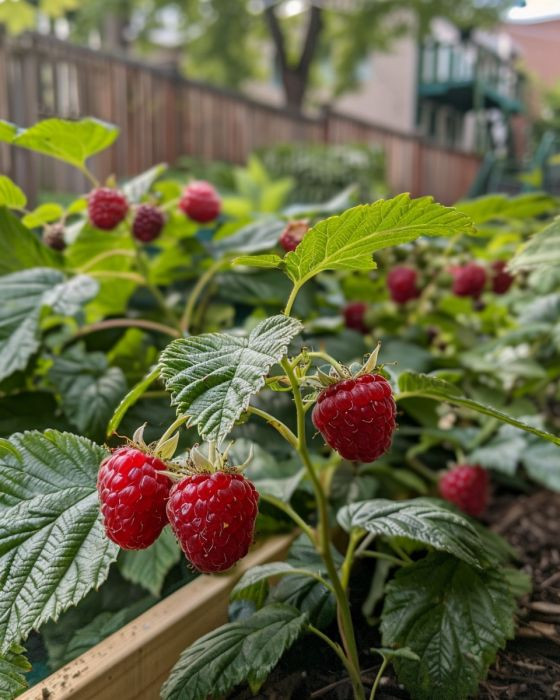4. Water Regularly and Mulch
Raspberries need consistent moisture, particularly during the growing season. Water your raised beds deeply once or twice a week. Mulching with organic material helps retain soil moisture and regulates temperature, creating an ideal growing environment.
5. Fertilize Wisely
Use a balanced fertilizer specifically recommended for fruiting plants. Apply in early spring and again in late spring. Avoid high-nitrogen fertilizers that can promote leaf growth at the expense of fruit production.
6. Prune for Productivity
Proper pruning encourages robust growth and larger berries. For summer-bearing varieties, prune back canes that have already produced fruit. For fall-bearing varieties, cut back all canes in late winter or early spring to stimulate new growth.
By following these expert tips, you’ll be well on your way to a thriving raspberry harvest. Raised beds present unique advantages and, with the right care, can help you grow some of the biggest and most delicious raspberries imaginable. Happy gardening!
ADVERTISEMENT

